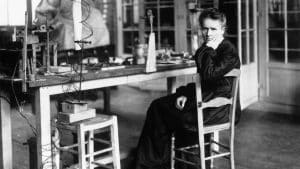Biography
Marie Curie: The Mother of Modern Physics

Marie Curie was a Polish-born French physicist who was famous for her work on radioactivity. She was born on November 7, 1867, in Warsaw, Congress Kingdom of Poland, Russian Empire and died on July 4, 1934, near Sallanches, France. She was the first woman to win a Nobel Prize and the first person to win two Nobel Prizes in different fields.
Age, Marriage, Career Net worth And More…

Marie Curie
She received a general education in local schools and some scientific training from her father. She went on to study physics and mathematics at the Sorbonne in Paris where she met her future husband Pierre Curie. Together they discovered two new elements, polonium and radium. Marie Curie’s work on radioactivity led to her winning the Nobel Prize in Physics in 1903. She was the first woman to receive this award1. In 1911 she won the Nobel Prize in Chemistry for her discovery of radium and polonium. Curie’s work was not without risks. She was exposed to high levels of radiation during her research which led to her developing leukemia. Despite this, she continued her work until her death in 1934. Marie Curie was known as the “Mother of Modern Physics” for her pioneer work in research about radioactivity, a word she coined. Her work on radioactivity paved the way for future scientific as well as medicinal advancements.
She discovered polonium and radium with her husband Pierre Curie. Curie’s relentless resolve and insatiable curiosity made her an icon in the world of modern science. Indefatigable despite a career of physically demanding and ultimately fatal work, she championed the use of radiation in medicine and fundamentally changed our understanding of radioactivity.





